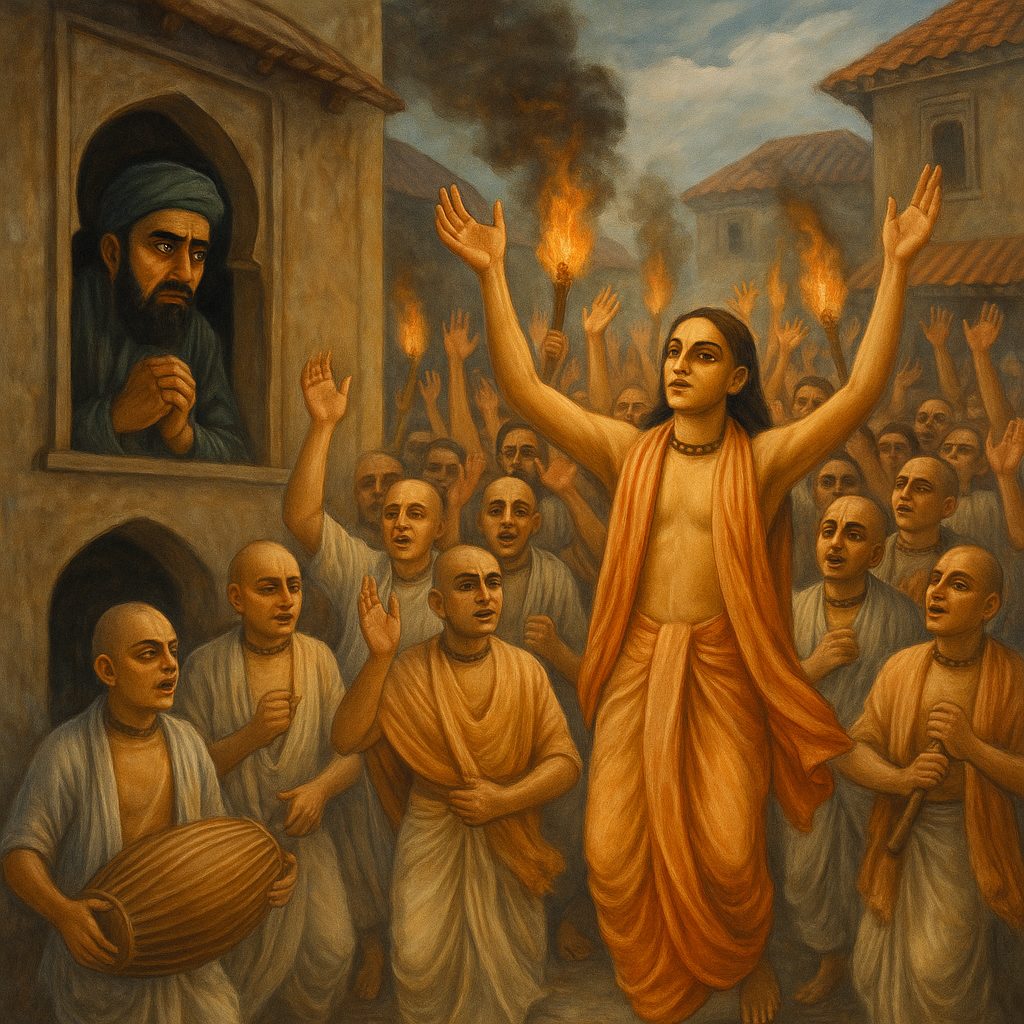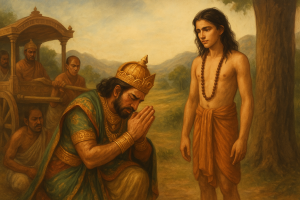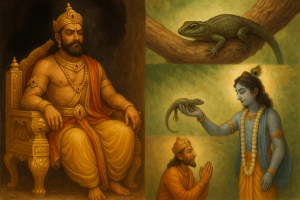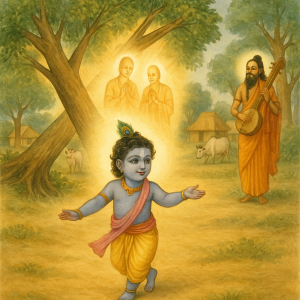The Oppression by Chand Kazi
Chand Kazi, the Chief Magistrate of Navadwipa, was a devout and strict Muslim official under Hussein Shah. He was zealous in enforcing laws that forbade the Hindu congregational chanting (kirtana) of the holy names of God. He confiscated musical instruments and threatened imprisonment and forced conversion for those who disobeyed.
The Devotees’ Fear and Report to Lord Caitanya
Fearing Chand Kazi’s wrath, the devotees stopped kirtana and reported the oppressive situation to Lord Caitanya Mahaprabhu. Upon hearing this, Lord Caitanya became furious—His anger was like that of Lord Shiva during cosmic annihilation—and declared He would personally lead a kirtana procession to challenge the Kazi.
The Triumphant Sankirtana Procession
The devotees joyfully prepared torches and assembled to follow Lord Caitanya. The procession filled the streets, their chanting and dancing filled Navadwipa with ecstatic spiritual energy. Lord Caitanya led the kirtana with unmatched bliss and power, inspiring millions.
Kazi’s Fear and Defeat
Hearing the thunderous chanting, Chand Kazi’s men fled, and Kazi himself hid. Lord Caitanya called for Kazi to come out and pacified him by reminding him of their familial relations (Kazi was related to Caitanya’s maternal grandfather).
Philosophical Debate and Warning
Lord Caitanya debated with Kazi and warned him about the sin of meat-eating, which brings great punishment. Kazi confessed his ignorance but stated he followed his community’s customs.
Kazi’s Transformation
Kazi admitted he had dreamt of Lord Nrsimhadeva threatening him for stopping kirtana, which terrified him. He acknowledged Lord Narayana as the Supreme God and showed devotion. Caitanya Mahaprabhu blessed him for chanting even a few names of the Lord, purifying his sinful reactions.
The Vow to Protect Sankirtana
Kazi promised never to oppose the congregational chanting within Nadia. This was a great victory for the devotees, who rejoiced with chants of “Hari, Hari!”
Lessons from the Story
- Even opposition by powerful rulers cannot suppress the divine power of sankirtana.
- The holy name has the power to purify anyone, regardless of past sins.
- Devotion and mercy can transform even the harshest opponents.
- The protection of devotional movements is essential for spiritual progress.



